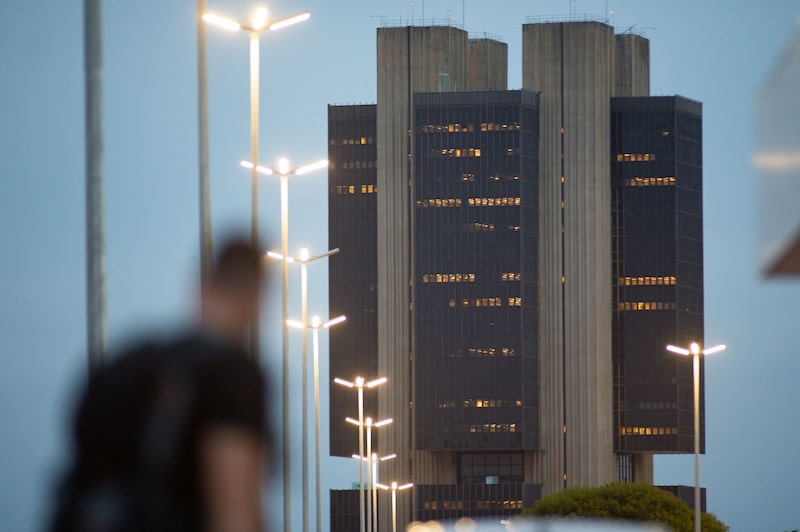Bloomberg — Felipe Tamega, the head of research at Absolute Investimentos in Sao Paulo, says Brazil’s central bank will cut rates as quickly and aggressively as implied in the swap rates market.
Brazil’s traders may have gotten ahead of themselves in pricing in interest-rate cuts next year, according to one of the country’s top-performing hedge-fund firms.
Defying the consensus, he forecasts another 25 basis points next week and says borrowing costs will remain high for longer as the global fight against inflation is far from over.
“The rate cuts priced in the curve are too aggressive,” said Tamega, who’s also a partner at Absolute Gestao de Investimentos, which has around 23.5 billion reais ($4.6 billion) in assets under management according to data from the nation’s capital markets association Anbima. “I really don’t see central bank making this kind of mistake.”
Tamega expected the tightening cycle to be over at this point, but hawkish comments from the bank’s members recently led him to bet on an additional move in the next meeting on Sept. 21.
Most traders had largely dismissed chances of additional monetary tightening after a campaign that has already added 11.75 percentage points to borrowing costs since March 2021. With the Selic currently at 13.75%, economists are discussing when rate cuts may start, as the central bank forecasts three consecutive months of deflation resulting from large fuel tax cuts.
His view is not a consensus. Economists surveyed by Bloomberg expect policy makers to keep the Selic rate unchanged next week, while the swaps market and digital options traded on the B3 local exchange price in a two-thirds probability of rates remaining on hold.
Not only do most traders think the central bank is done tightening, they are also pricing in an easing cycle starting as soon as March next year. There are about 240 basis points in rate cuts priced in the DI curve for 2023, with big banks including Goldman Sachs International, JPMorgan Chase & Co. and Citigroup. recommending receivers, a position that profits from falling rates.
“Inflation may rise fast, but it doesn’t come down that quickly,” Tamega said. “Being a Brazilian helps me get that perspective,” he added, referring to nation’s long history of high inflation.
The firm’s $2.2 billion Absolute Vertex Master FIM fund has returned 23% so far this year, outperforming 97% of its peers, according to data compiled by Bloomberg. The fund’s main positions are in external markets and include bets on higher US yields and a stronger dollar, as well as lower US stocks, according to the firm’s latest letter to clients from Sept. 9.
While concerned about global inflation, Tamega is more optimistic on the outlook for Brazil’s public accounts, which is key for investors given the nation’s elevated debt level. He said both front-running presidential candidates -- leftist Luiz Inacio Lula da Silva and President Jair Bolsonaro -- would probably be fiscally responsible next year.
The main question is how the next administration will replace the spending cap, which limits public expenditure growth to the previous year’s inflation rate and is seen by investors as the country’s main fiscal anchor. Creating a target for the primary surplus would be well received by markets, he said, while a public debt target as mulled by the Bolsonaro administration is trickier.
Read Also:
One More Hike For Argentina’s Central Bank, Inflation Nears 100%
© 2022 Bloomberg L.P.


